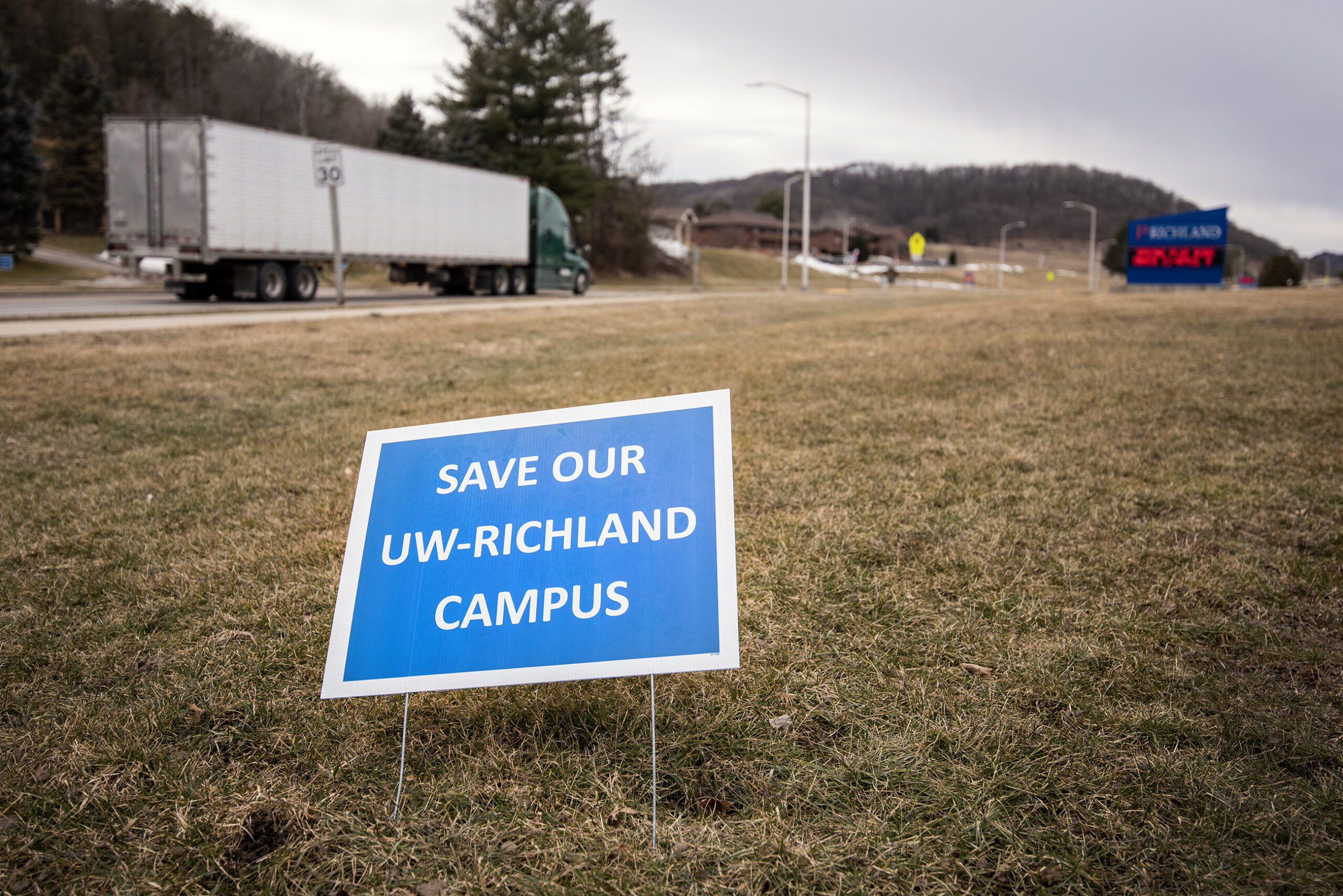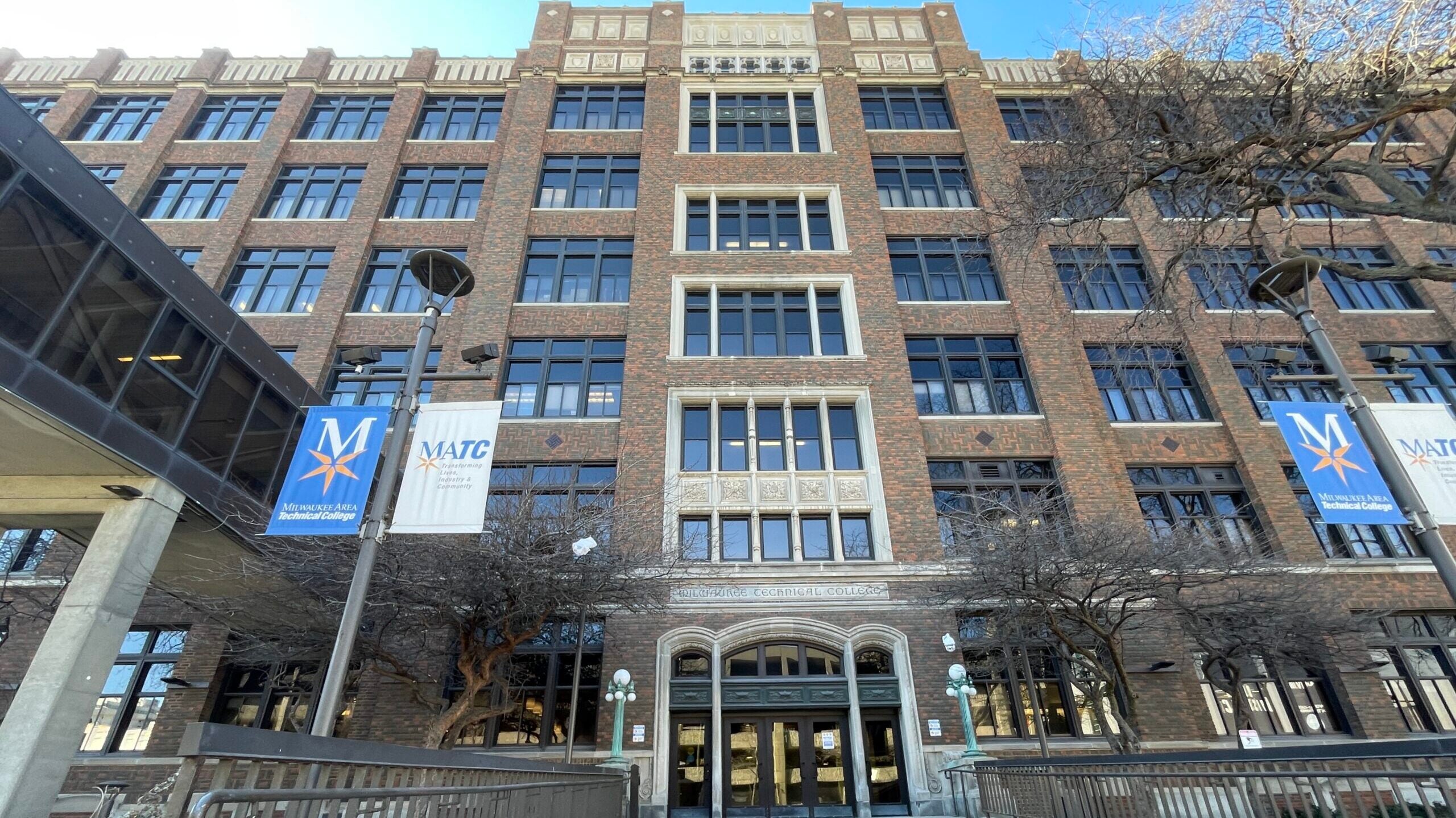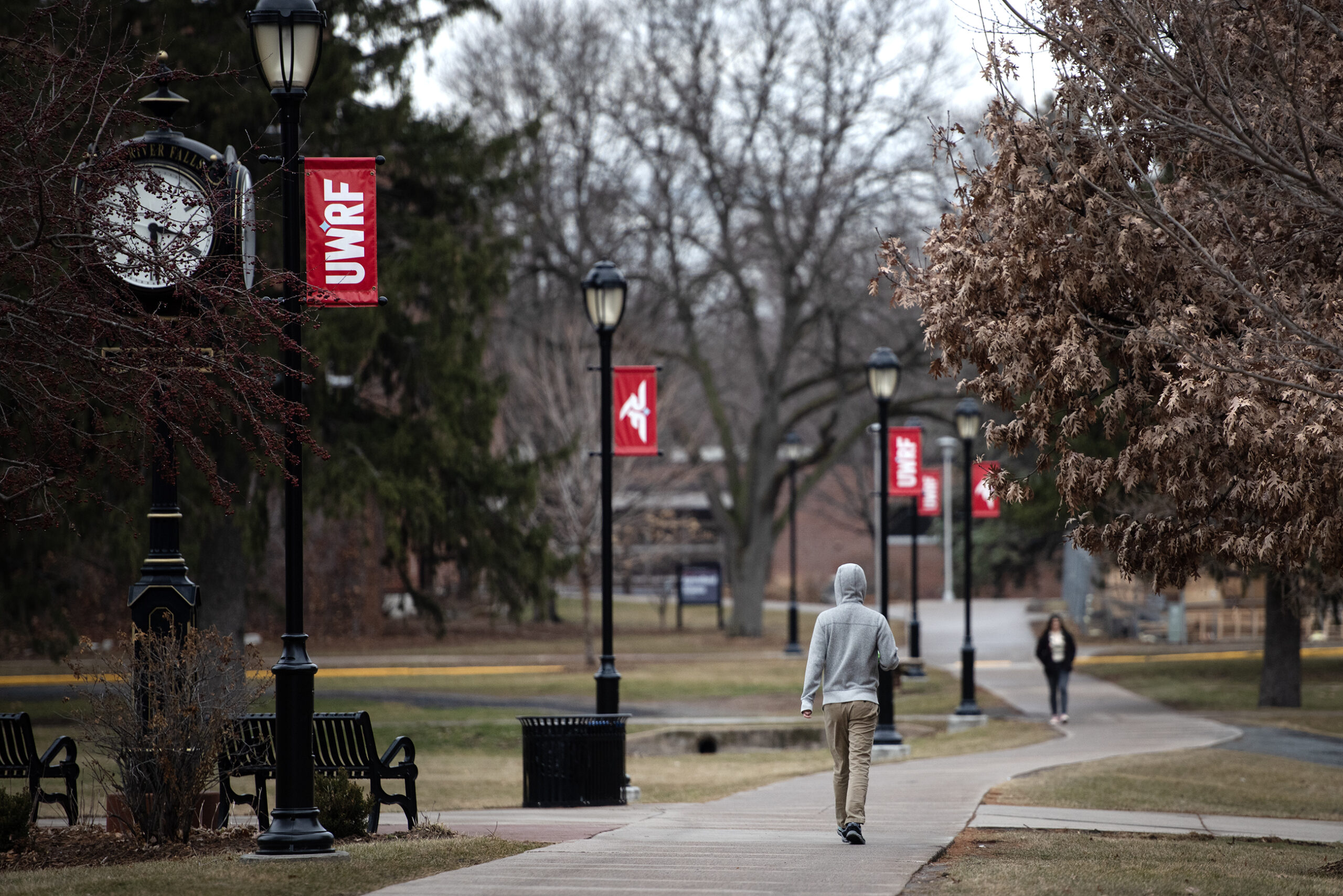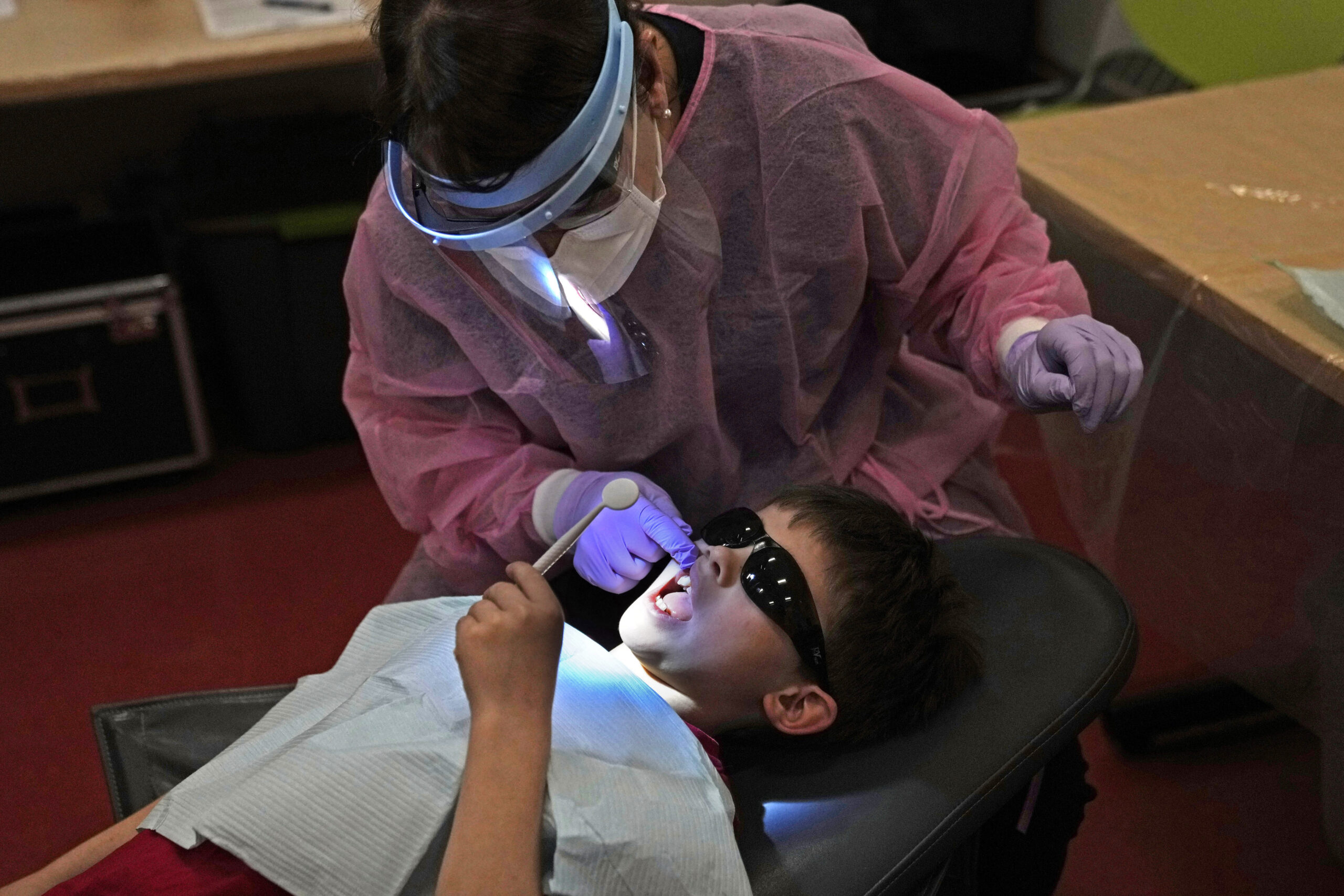Wisconsin lawmakers should address the state’s workforce challenges by investing more in child care programs and providing students with more financial aid, said the retiring leader of the state’s technical colleges.
Morna Foy, president of the Wisconsin Technical College System since 2012, made the comments in an interview during her last months overseeing the state’s largest higher education system.
Gov. Tony Evers similarly urged legislators this year in his State of the State address to take action on child care and education to fix workforce shortages.
Stay informed on the latest news
Sign up for WPR’s email newsletter.
On WPR’s “The Morning Show,” Foy said she hears from employers and students that child care is a continuous concern. Large swaths of the state lack access. Workers in the industry are leaving in droves. Costs are too high for some families. And state lawmakers have clashed over plans to support the industry amid expiring federal aid from the COVID-19 pandemic.
Foy also described Wisconsin as lagged behind neighboring states on providing student financial aid.
“That’s a bit of a concern,” she said.
Wisconsin has helped students by making educational resources, such as textbooks, more accessible with free digital copies, Foy said. She urged further steps to increase accessibility across all levels of higher education.
On “The Morning Show,” Foy also discussed her retirement decision, shared lessons from traveling to schools across the state and explained the operating costs that technical colleges endure.

The following was edited for brevity and clarity.
Kate Archer Kent: Why did you decide to retire?
Morna Foy: It’s tough to take the next step. But I’ve been doing this work for quite a while now. I think the system is in a terrific place. … Our enrollments are on the rise again. We’ve made a lot of great changes in response to the needs of our students, employers and communities that we serve. We just have a really good, collaborative culture that puts the system in a good place to meet the challenges that are definitely on the horizon.
I have worked in the tech college system through five different administrations. I’ve had the chance to work with over 50 incredible college leaders. I worked side by side with hundreds of dedicated volunteer board members, system colleagues, and state and local policymakers.
This has been a terrific career and a terrific ride. I love my job. That’s the best time to be able to try some new things. I really think change is a way that we grow as individuals and as organizations. I feel like the system is in a great place, and it’s time.
KAK: What are you learning as you travel the state and visit colleges?
MF: It has been an absolute blast. It’s easy to get caught up in the struggles we all have, and some of the hard changes the world is going through. But when I go to our colleges, get a chance to interact with our students, and see the way they are investing in themselves and in their communities, it’s so inspiring. It’s so optimistic.
I’ve been learning (about) a lot of new careers from our students and faculty that inspire them. In some ways, it makes me want to go back to school. It makes me want to think about other career choices. There are so many amazing ways to spend one’s time and careers to pursue. It’s mind-boggling, really. There are a lot of Wisconsinites who are really jazzed up about what they’re planning to do with their lives and how they’re going to get there. I’m getting the chance to see that up front.
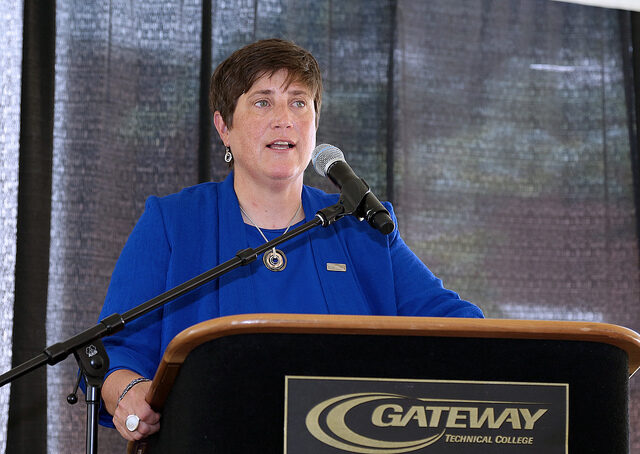
KAK: A recent Wisconsin Policy Forum report estimated the state’s technical colleges receive about $5,000 more in tax and tuition per full-time student compared to other two-year institutions nationwide. But that number might be inflated because colleges serve many part-time students. How do technical colleges use the revenue that’s generated from student tuition and fees?
MF: In Wisconsin, the technical colleges are responsible for many services and programs that we do not collect tuition for. The state made decisions a long time ago that these were public services that we wanted to support with public, state and local funding. That explains a lot of the difference — things like adult basic education and English language learning. Our fire service training is provided by technical colleges for free to fire departments and aspiring firefighters.
We are open-enrollment institutions. The vast majority of our students go part-time. Part-time students don’t pay as much in tuition as a full-time student would. But they still have all the same needs in terms of support, learning spaces, tutoring — all these services that every college student expects.
We are highly flexible and responsive to working adults. That means offering programming in a lot of different formats: virtually, in person, a combination. The technology that is required to do that and the flexibility in curriculum and in supporting students… there’s a cost to all of that. The vast majority of our students are in programs that require expensive equipment and have faculty who, frankly, have higher paying options out in the private industry. … We have to compete with industry for engineers, dentists and folks who have very desirable and well-compensated skill sets. All of our faculty are required to have worked in industry, and they bring those skills and expertise into the classroom.
Wisconsin Public Radio, © Copyright 2025, Board of Regents of the University of Wisconsin System and Wisconsin Educational Communications Board.

